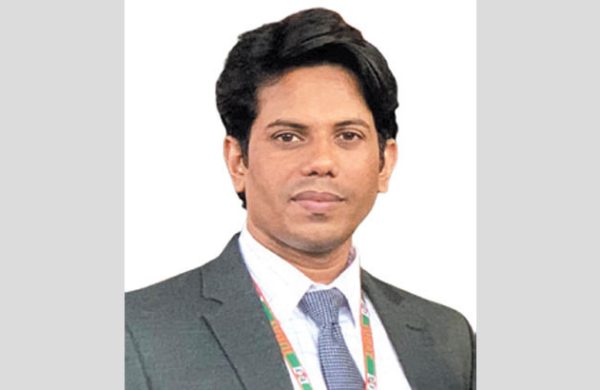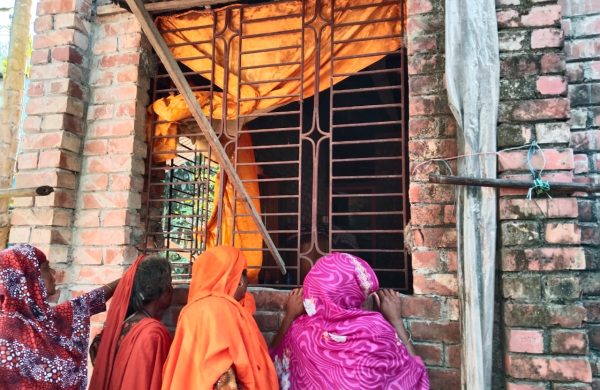What the survey on media opinion tells us?
- Update Time : Monday, February 17, 2025

—Dr S M Rezwan-Ul-Alam—
The interim government recently conducted a survey across the country to determine how people here feel about the media. The National Media Opinion Survey, a first of its kind in Bangladesh, was conducted during the first week of January by the Bangladesh Bureau of Statistics (BBS) at the request of the Media Reform Commission. More than 45,000 families from all 64 districts participated and were asked what they thought about the media. The BBS used a strict sampling method to examine how people reach, interact with, trust, and believe the media is independent.
The survey showed an interesting fact: teachers are trusted sources of information; over 42 percent of the respondents said they were their most trusted sources. Rural teachers enjoy more trust (nearly 45 percent) than their urban counterparts (just over 34 percent). This proves that teachers still hold considerable influence over the general population in Bangladesh. This finding, along with others from the survey, shows that Bangladesh still has trouble making sure that the media is open, honest, and free to access for everyone.
The survey findings indicate a significant shift in media consumption patterns in Bangladesh, with mobile phones emerging as the most widely used platform to access media content. As many as 59.28 percent of the respondents said they accessed media on their mobile phones, with rural usage slightly higher at 61.93 percent compared to 52.85 percent in urban areas. Women appear (66.99 percent) to be relying on mobile phones for media access more than men (54.33 percent).
The survey also sheds light on public trust in social media. Among digital platforms, Facebook is ranked as the most trusted, with 31.36 percent of respondents considering it a reliable source of information, followed by YouTube at 16.5 percent. Other social media platforms lag significantly in terms of public trust.
The poll shows a worrying trend for newspapers in Bangladesh: less than 27 percent of respondents said they read newspapers, with urban readers (35 percent) relying more on newspapers than their rural counterparts (less than 25 percent). Men (nearly 34 percent) read newspapers more than women (over 20 percent). Most newspaper readers (37.61 percent) still prefer the print version, while only 2.58 percent readers still read the digital version. Almost half of the respondents (46.52 percent) said they don’t read newspapers because they don’t find it necessary, while 15.88 percent said they don’t get the time.
Television remains a key source of information in Bangladesh, especially during the time of a crisis. According to the survey, 35.17 percent respondents find TV as the most reliable source. Overall, 65.42 percent watch TV, with higher viewership in urban areas (74.86 percent) than rural ones (62.68 percent). A gender gap persists, with more men (71.31 percent) watching TV than women (59.85 percent). The primary reason for not watching TV is a lack of interest (53.58 percent), followed by a lack of time (12.5 percent).
Radio listenership has plummeted to just six percent, with slightly higher rates in urban areas and more male listeners than females. The primary reasons for its lack of popularity are its lack of relevance as well as availability.
The National Media Opinion Survey also reflects a widespread public scepticism regarding media independence. Only 17.29 percent of respondents believe that media has complete freedom, while 24.18 percent feel media has some level of independence. Respondents also cited political interference (79.46 percent), government control (71.5 percent), and intervention by influential people (50.14 percent) as significant obstacles to press freedom. Meanwhile, 47.22 percent of respondents believe journalists cannot report freely.
People want the media to be free and impartial, as the survey has found. Some 67.67 percent said a fully independent press is necessary, while 59.94 percent wanted impartial/unbiased reporting. Furthermore, 32.68 percent believe the media should be free from government control, and 37.39 percent want it to be free of political influence.
However, when it comes to state-controlled media, the public opinion is divided. More than half of the respondents (56.47 percent) believe that Bangladesh Television (BTV) should remain under government control, while 55.35 percent hold the same view regarding Bangladesh Betar, the state-run radio broadcaster.
While significant, the survey has shortcomings; for example, it excludes platforms like WhatsApp, and has a vague definition of “lack of interest.” Future such surveys should include demographic data and explore the views of key stakeholders like journalists, media outlet owners, and civil and military government officials, whose perspectives on media freedom are crucial, especially given the past challenges in accessing such groups.
Despite its limitations, the survey highlights the need for media policy reforms in Bangladesh. It also underscores how developing media literacy, especially in the rural areas and among women, is necessary. Educational programmes and training can be launched to counter misinformation and promote awareness regarding the media’s role.
Ensuring media independence is another urgent necessity, so is bridging the digital divide. While mobile phone usage is high, computer usage remains low, particularly in rural areas. Expanding access to technology in these areas is crucial to ensure equitable access to digital information. The control of state-owned media also needs reassessment.
The survey conducted by the Media Reform Commission is essential to understand public perception regarding the country’s media industry. Despite its limitations, it presents a valuable opportunity to improve the country’s media system. The next crucial step is to take concrete actions based on these findings. Making the full dataset publicly accessible is also vital, particularly for those conducting media research. Keeping the data locked away under the pretext of preventing commercial misuse would only deepen distrust, contradicting BBS’s transparency policy.
Maintaining neutrality and independence also requires self-regulation within the media itself. Media institutions must engage in introspection and ensure governance within their structures alongside their calls for government accountability. If media organisations themselves obstruct the Media Reform Commission’s recommendations, it will severely impede press freedom and stall Bangladesh’s democratic progress—a pattern that history has repeatedly demonstrated.
———————————————–
Dr S M Rezwan-Ul-Alam is associate professor of media, communication and journalism Department of the Political Science and Sociology at North South University (NSU).



















